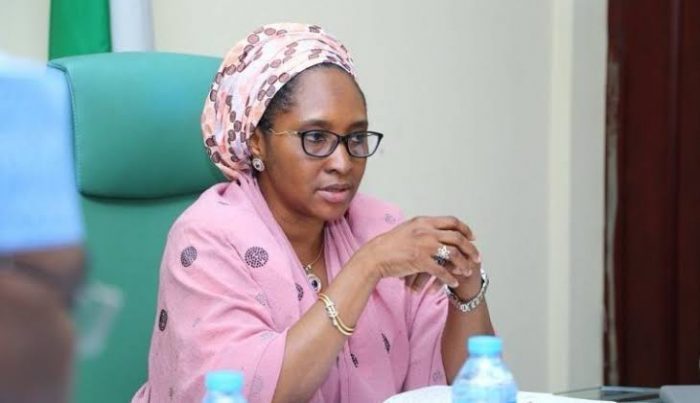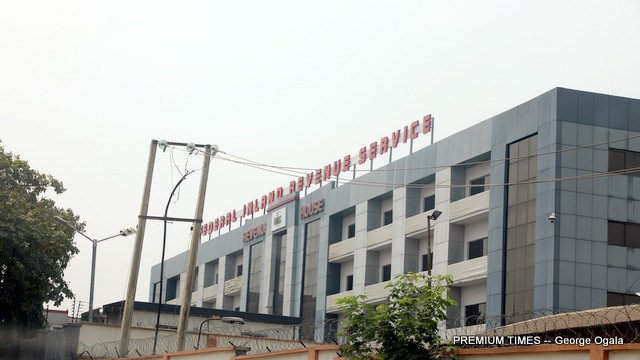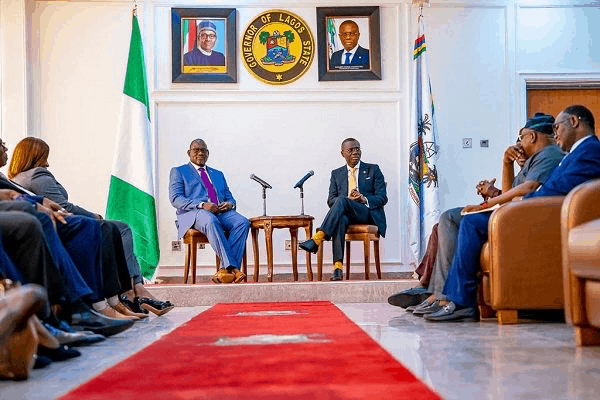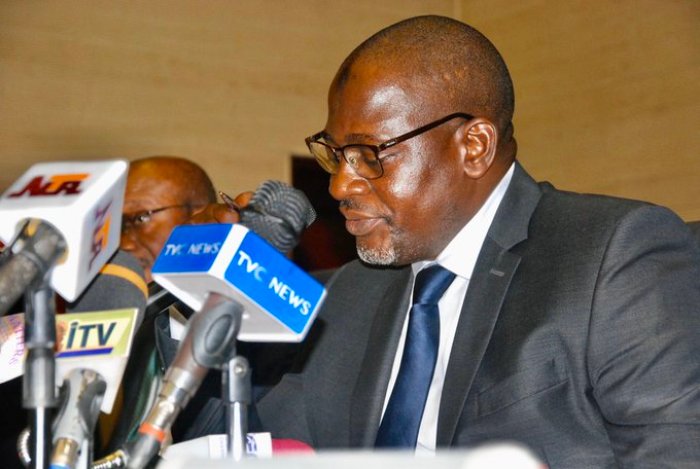The Executive Secretary of the Joint Tax Board (JTB), Mr. Oseni Elamah, has been replaced with Mr. Mohammed Lawal Abubakar. Elamah, who did not get another posting, has kicked against his removal, it was learnt. Sources said he might head for the court
The anxiety has given way to panic in the system because more officials might be affected in the new initiative. The FIRS has more than 10,000 employees.
One of those affected by the shake-up is Mr. Odekunle John Oluwatoyin, an Assistant Director and former Chief of Staff to Fowler, who was transferred to the Enforcement Unit.
A source said: “The movements were a means of shaping FIRS along the lines Mani believes could fetch him the N8.5 trillion target.
“While some of the directors were said to have moved up in relevance and ranking, one senior management staff got a tacit boot away from the agency. A new director also joined the service.
“It is also a means of placing, ‘Mani’s own ministers at strategic positions so he could move very fast.” According to a December 31, 2019 circular signed by the Director, Human Capital Management Department, Victor Ekundayo five top directors along with the executive chairman will constitute the Interim Management Team (IMT) of the FIRS.
Members of the IMT, who are part of the shake-up include a former Coordinating Director, Compliance Enforcement Group, Cyriacus Ekechi, who has been appointed the Transition Lead Compliance Support Group; the Director, Planning Reporting and Statistics, Aishiekh Maidugu is now Special Assistant, Special Duties to the Executive Chairman; and the Director, Debt Management, Femi Oluwaniyi, who is now Transition Lead, Domestic Taxes Group.
Others are Kudu Mohammed, Assistant Director, Project Management Office, (e- Services) now Special Advisor to the executive chairman – a position occupied by the former Acting Chairman, Abiodun Aina, before he became Coordinating Director,
Domestic Taxes Group and Dr. Abdullahi Ismaila Special Assistant Service and Communication to the FIRS chairman.
Others are Victor Ekundayo of Human Capital Department, who moved to the Career and Skills Development Department, Innocent Ohagwa of the Special Tax Audit Lagos, who replaced Ekundayo; Gbolaga Oshiga formerly of Abia, Ebonyi, Enugu, who moved to Revenue House Abuja as Director Tax Audit, Mohammed L. Abubakar, formerly Coordinating Director, Tax Appeal Tribunal who is now Secretary, Joint Tax Board (JTB).
“Sanni Dahiru and Assistant Director at the State Coordinator’s Office, in Charge of Kogi, FCT and Nasarawa replaced Mohammed Lawal Abubakar
“From Kano, Pam Davou, a Director, and State Coordinator in charge of Kano, Katsina and Jigawa states was asked to come in as Director, Collections at the Headquarters. While Najim Ajila, the former Director, Audit, replaced Oluwaniyi in Debt Collection, Joel Ogohi, a Deputy Director, replaced Oshiga as State Coordinator, Abia, Ebonyi, Enugu States.
Others moved include: David Ogedemgbe, Head, Large Tax Audit, who became State Coordinator, Lagos Island; Shetimma, Tamadi, a Deputy Director from the Office of the State Coordinator, Benue Kaduna and Niger, became State Coordinator for the states; Lucky Obodoekeh Chukwu, a Deputy Director, Head Oil and Gas ( Downstream) became Head, Large Tax Audit; Umar Aminu Galadanchi of Large Tax Office, Kano, became the State Coordinator Kano, Jigawa and Katsina states; Muazu Garba, Assistant Director, Training School, became State Coordinator, Oil and Gas ( Downstream); Etsu Mohammmed Madami, State Coordinator, Kebbi Sokoto and Zamfara, moved to Borno, Plateau, Bauchi and Yobe in the same position; Peter Alfred Assistant Director, Large Tax Office in Lagos, is now Head Special Tax Audit Lagos; Yerima Silas, Assistant Director, Large Tax Office Lagos ( Non-Oil) moved to Kano to head the Large Tax Audit Office.
It was gathered that four other managers were also moved.
Others swapped were Adebayo Kayode, Director Investigations, who was moved to Special Investigations Department, while Idris Ahmed Ndanusa , a fresh Director was hired and posted to Internal Affairs Department, Chukwuemeka Obiagwu, formerly of Enforcement Department is now in the Enforcement Unit, Office of the Executive Chairman, Ozavize Winfrul, a Deputy Director of the Compliance unit in the Chairman’s office, moves to Compliance Research, Simon Kato a Deputy Director and Special Assistant, Office of the Chairman moved to Domestic Taxes Group, An Assistant Director and former Chief of Staff to the former Executive Chairman, Mr. Odekunle John Oluwatoyin, was transferred to the Enforcement Unit in the Office of the Transition Lead Enforcement and Compliance Group.
“Maupatin Olatundun, formerly the Special Adviser to the Executive Chairman was moved to Tax Audit Department; Dr. Olufemi Akinfala, formerly Head, Research and Development Department was moved to Planning Research and Statistics Department; Oyebanji Olufemi Matthew , Deputy Director Special Tax Audit, Lagos, became Tax Controller Oil and Gas, Lagos, Muazu Alhaji Garba, an Assistant Director, Tax Controller Oil and Gas (Downstream) was moved to Tax Investigation Department.
“ Orebanjo Adebola, an Assistant Director at Relationship Management Unit, Lagos was moved to Large Tax Office, Non-Oil, and Aniko Emmanuel was also moved to Large Tax Oil and Gas.
“Two other Assistant Directors: Oluwa-Ameenat Badmus and Oluola Olamide Adedayo were moved from Relationship Management Unit to State Coordinator’s office, while most staff of the Relationship Management Unit—said to be a creation of Tunde Fowler, were also transferred.
A source said Elamah has filed a pre-action notice against his removal.
The source said more transfers and movements will come as Mani strengthens his hold on the FIRS.
He added: “The redeployments are not punitive. These transfers are normal. When Fowler also came, he moved top staff on a continuous basis until he was comfortable to do the job.
“In the FIRS, anyone who has spent four years in an office could be transferred. It’s in black and white. And the members of staff know about this policy. The chairman is eager for results. And as you can see, his focus is tax, tax, tax and anything that could assist him to realize the 2020 target.”





